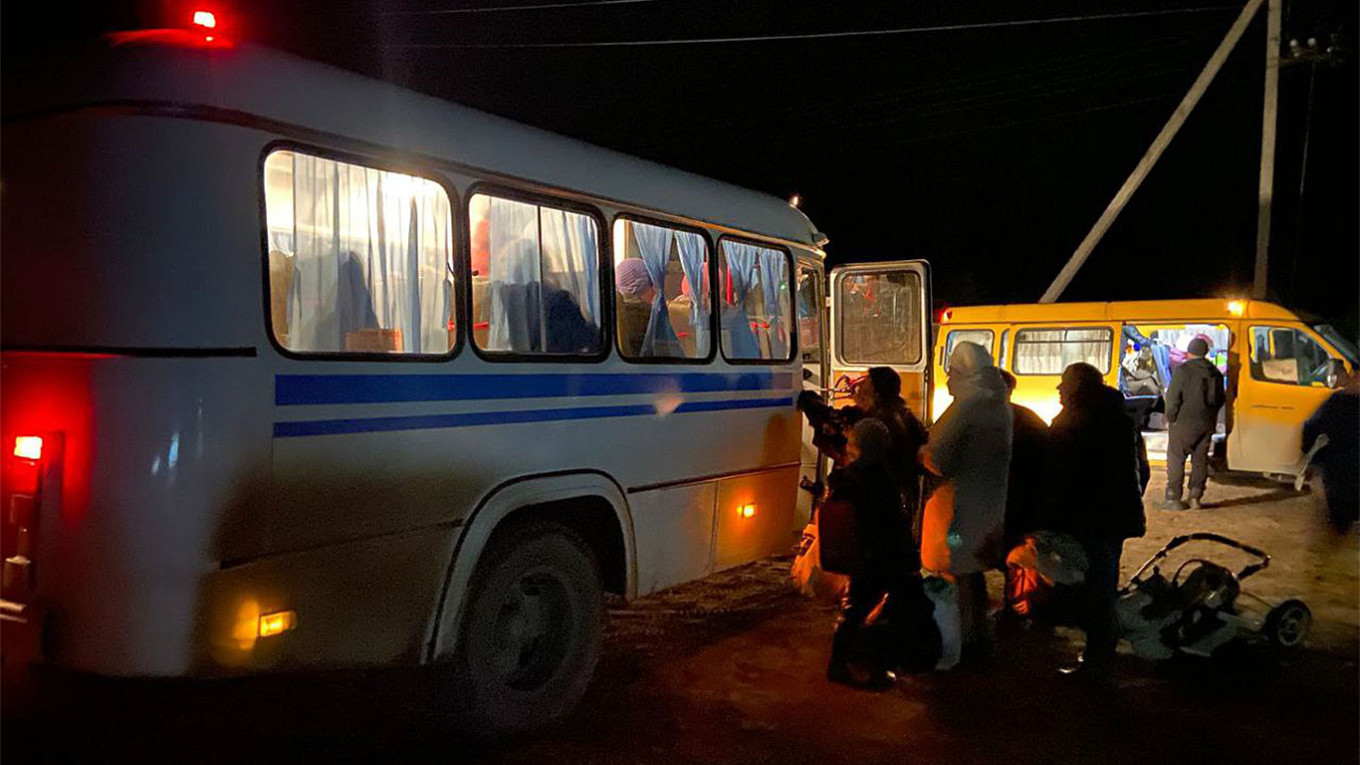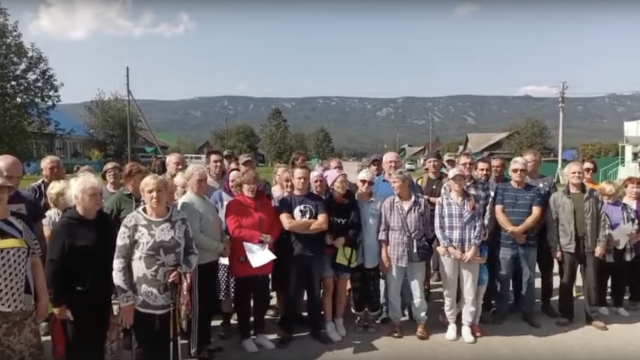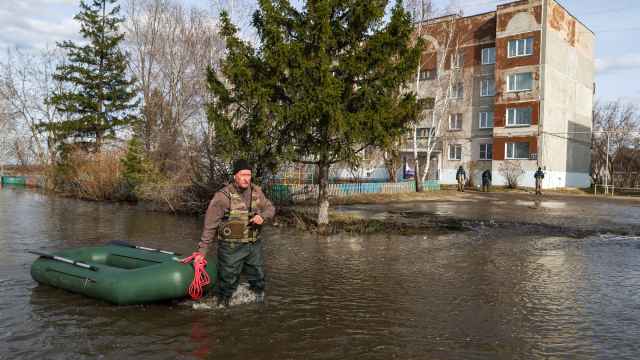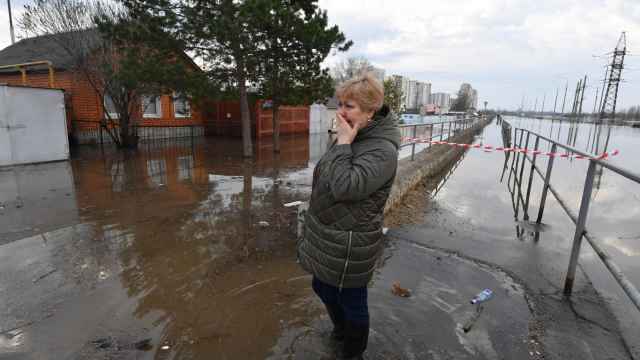The threat of flooding in Russia’s Ural Mountains has shifted from the town of Orsk to neighboring cities and regions, authorities said Tuesday.
Thousands have been forced to evacuate Orsk this week as the Ural River swelled. The floodwaters are now reaching dangerous levels in the main city of Orenburg, with the peak of the flood expected on Wednesday.
Orsk Mayor Vasily Kozupitsa said water levels in the Ural River had fallen by 39 centimeters to 928 centimeters Tuesday, allowing some residents of the most flood-stricken neighborhoods to return home.
He added that access to hot and cold water was gradually being restored, while emergency officials told state media that electricity supplies were also being phased in.
Sergei Salmin, the mayor of Orenburg, a city of 560,000 people, warned of an “unprecedented” peak of the flood. Eight villages near Orenburg faced “critical” situations as the river had risen by 25 centimeters over the last 24 hours.
Regional police said fake charities soliciting false donations for relief efforts have sprung up, and more than 900 additional police officers have been deployed to prevent looting. Residents complained of looting during protests against the local administration on Monday.
Rivers in western Siberia’s Kurgan and Tyumen regions are also swelling.
In Kurgan, a city near Kazakhstan — where more than 86,000 people have been evacuated — authorities said Tuesday that 689 people have been evacuated from the overflowing Tobol river.
The mayor's office in Kurgan, a city of around 300,000 people, said the floods could reach the local airport.
Russia declared regionwide states of emergency in the Orenburg, Tyumen and Kurgan regions.
The Kremlin said Tuesday that the Kurgan and Tyumen regions face “difficult days ahead.”
“There’s a lot of water coming,” spokesman Dmitry Peskov told reporters.
President Vladimir Putin is still not planning to visit the Orenburg region, Peskov said, adding that the Russian leader is being regularly updated on the crisis and “is constantly dealing with these issues throughout the day.”
AFP contributed reporting.
A Message from The Moscow Times:
Dear readers,
We are facing unprecedented challenges. Russia's Prosecutor General's Office has designated The Moscow Times as an "undesirable" organization, criminalizing our work and putting our staff at risk of prosecution. This follows our earlier unjust labeling as a "foreign agent."
These actions are direct attempts to silence independent journalism in Russia. The authorities claim our work "discredits the decisions of the Russian leadership." We see things differently: we strive to provide accurate, unbiased reporting on Russia.
We, the journalists of The Moscow Times, refuse to be silenced. But to continue our work, we need your help.
Your support, no matter how small, makes a world of difference. If you can, please support us monthly starting from just $2. It's quick to set up, and every contribution makes a significant impact.
By supporting The Moscow Times, you're defending open, independent journalism in the face of repression. Thank you for standing with us.
Remind me later.






